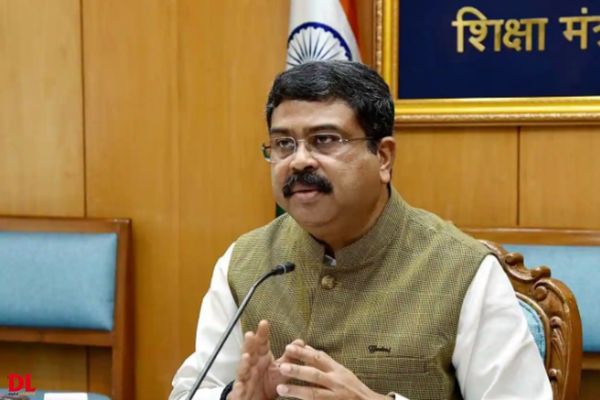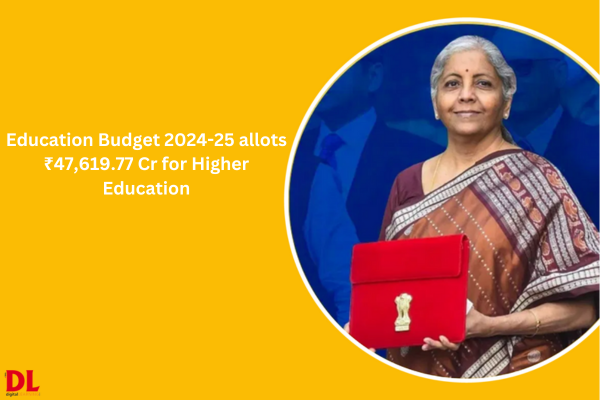Dubai, February 5, 2024 – The first day of the 28th Elets World Education Summit (WES) concluded today at Millennium Plaza Downtown Hotel in Dubai, marking the beginning of a two-day event dedicated to exploring the future of education worldwide. Hosted by Elets Technomedia in collaboration with Elets Digital Learning Magazine, the summit brought together distinguished educators, industry leaders, policy-makers, and stakeholders to engage in meaningful discussions and foster collaboration in shaping the future of education.
Day one of the summit witnessed a vibrant exchange of ideas, as distinguished speakers from across the globe shared their expertise and insights on various facets of education. The summit commenced with a warm welcome address by Dr. Ravi Gupta, Founder and CEO of Elets Technomedia, setting the stage for a series of thought-provoking sessions. Dr. Gupta underscored the importance of the World Education Summit, characterizing it as a gathering of education leaders focused on learning, exchanging ideas, empowerment, and fostering community. He recapped its inception, tracing back to 2011 when the revered late Dr. APJ Abdul Kalam, India’s esteemed former president and renowned scientist, served as an inspiration and mentor for the initiative. Dr. Gupta emphasized Dr. Kalam’s admiration for Digital Learning magazine’s commitment to advancing IT in education, which ultimately led to the establishment of the World Education Summit.
“Over time, WES has broadened its footprint from Delhi to encompass Mumbai, Hyderabad, Dubai, Bahrain, and, in 2019, the University of Denver. Despite the hurdles presented by the COVID-19 pandemic, WES persevered in its endeavors by hosting virtual editions in the USA, the Middle East, and other regions. In 2023, the summit resumed its international conferences, conducting events in Dubai and Malaysia,” Dr. Gupta said emphasising the importance of reaching a broader global audience through the premier summit.
Keynote address by Sivakumar Veerappan, Founder & CEO of Creatrix Campus, and special remarks by K Bhaskar, IAS, Commissioner of School Education (Infrastructure), Department of School Education, Government of Andhra Pradesh, India, further captivated audience with unique perspectives and ideas.
Showcasing two dedicated tracks focusing on higher and school education, the summit provided attendees with a comprehensive exploration of key challenges and opportunities shaping the educational landscape globally. With a lineup of speakers representing diverse perspectives and experiences, the summit provided a platform for meaningful dialogue and collaboration among educators, industry experts, and stakeholders. Attendees gained valuable insights into emerging trends, and strategies to meet the evolving needs of learners and institutions.
Higher Education Track
The day was marked by engaging panel discussions, exclusive presentations, and insightful presentations by universities and institutions. Noteworthy sessions included discussions on global collaboration in education, lifelong learning in the digital age, international collaboration in higher education, and adapting to the global tech wave, among others. The summit also provided a platform for networking and exploration of cutting-edge solutions by exhibitors and partners.
The discussions featured luminaries from the higher education sector, including Prof Ammar Kaka, Pro Vice-Chancellor & President, Curtin University Dubai, UAE; Dr. Madhu Chitkara, Pro Chancellor, Chitkara University, Punjab & Himachal Pradesh, India; Dr. Lars-Erik Unestahl, Founding President, Scandinavian International University, Sweden; Dr. Nasser Almuraqab, Vice President – Operational Affairs & COO, University of Dubai, Dubai, UAE; Dr. Hamad Odhabi, Vice Chancellor, Abu Dhabi University, Abu Dhabi, UAE; Prof. Abhilasha Singh, Vice President Academic Affairs, The American University in the Emirates, Dubai, UAE, etc.
The summit also witnessed exclusive presentations and insights from leading educational institutions and organizations, including Creatrix Campus by Anubavam Technologies, Camu, Haridwar University, Meritto, and Board Infinity.
School Education Track
The school education track featured a diverse range of presentations and panel discussions, bringing together esteemed professionals and experts from various sectors of the education industry.
Dr. Niyati Chitkara, Vice President of School Education at Chitkara Educational Trust, India, will deliver an exclusive presentation on altering the DNA of teacher education, focusing on the synergy between school and higher education. Shanthi Menon, Director of IQAD at the University of Stirling, UAE, will present on empowering education beyond the classroom.
A series of panel discussions formed the crux of the summit, providing a platform for in-depth conversations on crucial topics shaping the future of education. Panel discussions covered themes such as fostering holistic development, embracing innovation and collaboration in the digital age, rebooting learning for the 21st century, investment outlook and opportunities in the education sector, and finding the right balance in blended learning models.
Distinguished speakers and panelists included prominent figures such as Dr. Brijesh Karia, Chief Operating Officer, Singhania QuestPlus; Abeda Natha, Director of Digital Learning, GEMS Wellington International School, Dubai, UAE; Dr. Beno Kurien, Director – Education and Training, Global Edu Solutions, UAE & Principal, International Indian School, Abu Dhabi, UAE; Dr. Anjuli Murthy, CEO/Principal, Our Own High School, Dubai, UAE; Dr. S. Reshma, Director – Quality Assurance and School Welfare, International Group of Schools, UAE, etc. who brought their expertise and insights to enrich the discussions.
Furthermore, the summit served as a hub for networking and collaboration, with participants having the opportunity to engage with leading exhibitors showcasing cutting-edge solutions and services tailored for the education sector.
Partners that joined at the 28th Elets World Education Summit included Creatrix Campus as the Powered By Partner, Meritto (formerly NoPaperForms) as the Admission Automation Partner, Campus 51 by Benchmark Academy as the Teacher Certification Partner, Singhania Quest Plus as the School EdTech Partner, CTPL – Creanovation Technologies Pvt. Ltd. as the Student Recruitment Partner, Edsidera, KSI Education, Campu, and Infinity as the Silver Partners. R.M.K Group of Institutions participated as an Institute Partner, while Ryan International Group of Institutions represented as a School Partner. University partners included the University of Stirling, Ras Al-Khaimah Campus, Westford University College, Graphic Era University, Chitkara University, Haridwar University, Jeppiaar University, Invertis University Bareilly, IEM UEM group, and Subharti University. Additionally, RMB Group, Board Infinity, EduBrisk, and IIDE – The Digital School were Associate Partners. Century Financial and Swenetic In extended their support as Supporting Partners.
Exhibitors who showcased their offerings separately at the event included Accuracy – Language Solutions Simplified, CUEMATH, Teachmint, Codetantra, Edmentum, Toddle, Arize Digital, and EduZo.
The special edition of Elets Digital Learning Magazine was also officially launched on the inaugural day of the 28th Elets World Education Summit in Dubai.


























